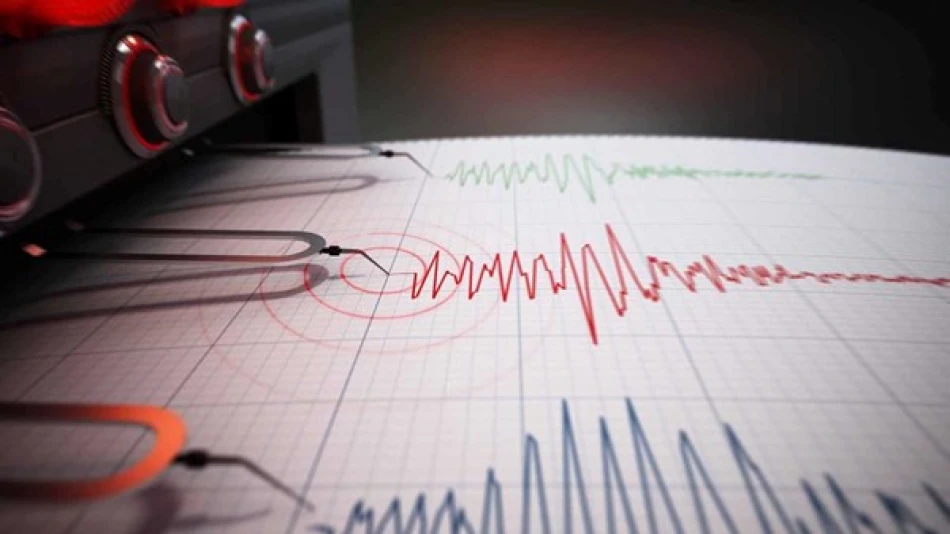
Magnitude 4.8 Earthquake Shakes Turkey's Aegean Sea, Raising Awareness for Seismic Preparedness
Turkey's Aegean Coast Hit by 4.8 Magnitude Earthquake, No Damage Reported
A moderate earthquake struck Turkey's Aegean Sea region today, measuring 4.8 on the Richter scale. While no casualties or property damage have been reported, the tremor serves as another reminder of Turkey's position along one of the world's most active seismic zones, just over a year after the country's deadliest earthquake in modern history.
Latest Earthquake Details
Turkey's Disaster and Emergency Management Authority (AFAD) confirmed the earthquake occurred at a depth of 8.99 kilometers beneath the Aegean Sea, west of Turkey's coastline. The relatively shallow depth typically means stronger ground shaking, but the moderate magnitude and offshore location likely prevented significant impact on populated areas.
AFAD's monitoring systems detected no immediate reports of structural damage or injuries following the tremor. Coastal communities in western Turkey are accustomed to minor seismic activity, given the region's location where the Eurasian and African tectonic plates meet.
Turkey's Ongoing Earthquake Reality
This latest earthquake comes as Turkey continues recovering from the catastrophic February 6, 2023 disaster that fundamentally changed how the country approaches seismic preparedness. That 7.8 magnitude quake, centered in southeastern Turkey near the Syrian border, killed over 50,000 people and left hundreds of thousands injured.
The 2023 Disaster's Lasting Impact
The February 2023 earthquake wasn't just a human tragedy—it exposed critical weaknesses in Turkey's building standards and emergency response systems. Entire cities like Kahramanmaraş and Antakya were reduced to rubble, with thousands of buildings collapsing within minutes.
The disaster triggered a nationwide review of construction codes and seismic monitoring capabilities. Turkey sits on multiple fault lines, including the North Anatolian Fault, which runs across the country's northern region and has produced several major earthquakes over the past century.
What This Means for Turkey's Preparedness
Today's Aegean earthquake, while minor, tests the improved monitoring systems Turkey has been developing since last year's catastrophe. The quick detection and reporting by AFAD demonstrates the country's enhanced early warning capabilities.
But here's the thing—Turkey experiences hundreds of small to moderate earthquakes each year. Most cause no damage, but they serve as constant reminders that larger, more destructive quakes are inevitable in this seismically active region.
Regional Seismic Patterns
The Aegean Sea region regularly experiences earthquake activity due to the complex interaction of tectonic plates. Both Turkey and Greece monitor this area closely, as historical records show the potential for larger quakes that could affect coastal populations and tourist areas.
Today's 4.8 magnitude event falls into the category that seismologists consider "light to moderate"—strong enough to be felt by people but typically not powerful enough to cause structural damage to well-built structures.
Looking Forward
Turkey's earthquake preparedness has become a national priority since the 2023 disaster. The government has allocated billions of dollars for retrofitting buildings, improving early warning systems, and training emergency response teams.
While today's earthquake caused no harm, it reinforces why these investments matter. Turkey's location makes major earthquakes a question of when, not if. The country's ability to detect, respond to, and recover from seismic events will determine how well it protects its 84 million citizens in future disasters.
Most Viewed News

 Layla Al Mansoori
Layla Al Mansoori






